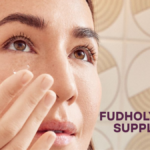Standing out in a crowded marketplace means focusing on more than just a great product or service. Being strategic and creative with your marketing is key. But what if you don’t have a huge marketing budget or unlimited resources?
In this article, the experts at the UK’s leading company formation agent, Quality Company Formations, reveal how small businesses can still stand out through content marketing, referral programmes, low-cost campaigns, and more. Read on to learn more about these effective marketing tactics.
1. Build trust and credibility with strong branding
Your brand identity shapes how customers view your business. A cohesive brand logo, colour palette, typography, and messaging help build familiarity and trust. Looking beyond aesthetics, you can establish credibility by having a professional registered office address displayed on the official register of companies and your stationery, emails, and website. This is especially important for startups looking to build confidence with investors and potential customers.
Optimise your Google Business Profile
A well-optimised Google Business Profile (GBP) is an effective and free marketing tool. It boosts your business’ presence across Google Maps, local search results, and the Google Knowledge Panel when users type in branded queries (queries that use your business’ name).
Remember to keep your GBP up to date by adding recent, high-quality images, responding to customer reviews, and ensuring your opening hours are correct if you’re running a brick-and-mortar business.
Encourage reviews and customer testimonials
People trust businesses that others endorse. Encourage customers to leave Google and Trustpilot reviews, showcase testimonials on your website, and share customer experiences on social media. You can take it a step further by focusing on video testimonials or case studies; these are more authentic, so they are more likely to capture the interest of potential customers and build trust.
2. Develop a unique value proposition (UVP)
It’s important to clearly define your UVP, as this is what distinguishes your business from competitors. Avoid simply listing your USPs and instead focus on how your product or service’s features benefit your target customer.
For example, instead of saying “planet-friendly skincare”, use precise, evocative, and benefit-driven language such as “sustainably sourced, plant-based skincare that hydrates and nourishes your skin”.
Take Barrecore, a fitness studio that has built a strong following. The brand’s UVP highlights what makes it different: “More than a workout, Barrecore has gained a cult following over 13 years. As a market leader in health and wellness, it stands out for its unique methodology, elite instructors, and state-of-the-art studios”. By positioning itself as more than just a place to exercise, Barrecore attracts an engaged audience that values the science behind fitness and a focus on community.
3. Focus on storytelling and memorable launches
If you’re registering a new business, think of creative ways to open your doors and present it to the public. Whether you’re launching a bakery, yoga studio, or retail brand, invest time into creating an opening campaign that generates buzz around your product or service.
Chestnut Bakery, for example, crafted a story-driven launch campaign before opening its flagship London bakery. To generate excitement, the brand:
- Created a narrative-driven campaign, “Breaking Bread Since…”, which chronicled the history of famous breads and viennoiseries leading up to their opening.
- Displayed ads across the London Underground and bus stations, making the brand visible in high-traffic areas.
- Partnered with leading food influencers like Clerkenwell Boy and Edd Kimber, leading to over 20,000 Instagram followers before the store opened.
This omnichannel approach blended storytelling, ads, and influencer marketing to create an authentic and memorable campaign from which other small businesses can take inspiration.
4. Invest in content marketing
If you’re not doing so already, focus on creating content that speaks to potential customers and resonates with your existing audience. Consider adding a blog to your website and crafting editorial content to capture search interest around your brand and offering. This can support driving organic traffic to your site while enhancing the customer experience.
For instance, Barrecore’s site features blog articles tailored to its audience’s interests. Articles such as “6 tips for Barrecore beginners” are actionable and give new customers helpful guidance, while healthy-recipe blog posts such as the “Gluten & dairy free cookie recipe” article strengthen brand identity with a focus on wellbeing and nutrition. By offering highly relevant content, Barrecore expands its reach and offers existing customers value beyond the studio classes they sign up for.
Create infographics
Infographics effectively present large or complex amounts of data or information in a digestible format. They’re easy to share, so they can help drive referral traffic. If your budget doesn’t stretch enough to hire a professional designer, leverage free tools like Canva to create on-brand, engaging infographics.
Not sure what to create an infographic for? Consider presenting industry insights or statistics that pique your audience’s interest or explaining processes that could benefit from an illustration.
Leverage video marketing
Video is a powerful marketing tool. For instance, if you’re running a fitness or DIY business, you could create instructional videos such as tutorials or short classes. Alternatively, consider behind-the-scenes content to engage your audience, product demos to bring your products to life, or interviews with industry leaders.
Many personal training businesses have gained large social media followings thanks to quick, engaging fitness videos. These range from demonstrating proper techniques and nutrition tips to at-home workouts. Offering this bite-sized, high-value content for free means they can establish authority and trust, increasing their chances of new customers reaching out to them.
Encourage user-generated content (UGC)
Customers are more likely to trust what other customers say, so encourage UGC by asking customers to use branded hashtags when sharing photos or reels about your product or service. You can also create competitions or offer incentives such as discounts to customers who leave transparent reviews.
These customers may then become brand advocates, who you can reach out to repeatedly for organic marketing that’s authentic and relatable.
5. Expand your offerings
Why not offer similar services that meet customer needs to make your business stand out? For instance, if you run a supplements or nutrition business, you could maximise your marketing and distinguish your brand by:
- Hosting workshops featuring guest speakers on related topics.
- Launching and promoting additional products or services, such as digital meal plans.
- Offering exclusive perks to members or loyal customers, such as access to a private community or bonus meal plans.
Diversifying your services presents further marketing opportunities, sets your brand apart from others in a similar space, and gives customers more chances to connect with your brand.
6. Maximise referral marketing
Word-of-mouth marketing is still an effective form of advertising. Developing a referral programme doesn’t have to be complicated and can make your brand more appealing compared to competitors.
Think about offering a discount, free product, or service upgrade to the person who refers and to the referred customer. These incentives help your business find new customers and can help drive revenue, so long as they’re structured, and the perks are worthwhile for existing customers.
7. Get creative with guerilla marketing
Guerilla marketing is often unconventional but low-cost and, if done well, can make your business stand out. Examples of guerilla marketing include:
- Street art or chalk marketing: This involves writing engaging messages or showcasing your social media handle prominently on pavements or walls in high-traffic areas. These visually appealing messages or handles can generate buzz and spark conversation online.
- Flash mobs: This tactic involves surprising the public with performances. For example, ballerinas from Pineapple Dance Studios were spotted dancing at the grand opening of the new Charlotte Tilbury flagship store in Covent Garden on 9th January 2025.
- Pop-up product demos: Giving away free products in exchange for customers signing up for a newsletter or completing a survey can promote your offering organically; people post about it on social media, making your brand more memorable.
8. Create timely marketing campaigns
To set your company apart from competitors, why not host limited-time seasonal or cultural events and campaigns to create excitement and exclusivity around your brand?
For instance, Kama Ayurveda’s founder hosted Holi celebrations at the Flagship Boutique in Notting Hill on 13th March 2025. At the event, guests could receive beauty and wellness secrets, Holi-inspired canapés, and exclusive gifts. This kind of immersive experience helps reinforce brand identity while fostering customer engagement.
Similarly, seasonal marketing campaigns are an effective marketing technique to make your business stand out. Borough 22 Doughnuts, a bakery specialising in plant-based doughnuts, launched a limited-edition Ramadan and Eid Sweet Feast Box featuring Middle Eastern flavours such as pistachio glaze and Arabian rose glaze. By adapting the product offering at this time, the business created demand and exclusivity while differentiating itself from competitors.
9. Think of out-of-the-box marketing strategies
Sometimes, the most memorable marketing ideas come from doing something that’s rarely or never been tried. If an innovative idea is well-executed, it can create a lasting impression for your business. Some examples of more out-of-the-box marketing tactics are:
- “Pay what you want” limited-time offers: Generate buzz by letting customers decide the price for a short period.
- “Golden ticket” campaigns: Hide special offers or rewards inside random product packages to encourage excitement and repeat sales.
- Mystery boxes: Offer surprise product bundles to build curiosity and engage customers.
Develop your standout marketing strategy
With the right mix of branding, content marketing, omnichannel campaigns, and creativity, your business can stand out in the market. An important takeaway is to create on-brand experiences consistently, experiment with fresh marketing formats, and always keep your audience front of mind.
If you want to run your small business more effectively and scale it, contact the friendly team at Quality Company Formations. They will be happy to offer further guidance on streamlining your operations, staying compliant, and growing your company.











